Having spun off its sugar division, Tate & Lyle is now focused on sweetening, mouthfeel and fortification in a $5bn bet on better nutrition via its ingredients
Nick Hampton admits his youngest daughter is “a ketchup freak”. He’s thankful, therefore, that times have changed for the ubiquitous condiment. “Twenty years ago, finding a lower-salt, lower-sugar version of Heinz was pretty difficult. Not any more – it’s a mainstream product on the shelf.”
For the past 10 years, this kind of reformulation has been front of mind for Hampton at work, as well as at home. The CEO of Tate & Lyle has been supercharging his company’s break from its past as a sugar business. That began in 2010 when it agreed the sale of its sugar division – now called Tate & Lyle Sugars – to American Sugar Refining for £211m to focus on reformulation solutions.
In a complete volte-face, it now creates sweeteners and other ingredients that help brands lower the sugar content of its products, add extra fibre or carry out other reformulations. Hampton describes the modern incarnation of Tate & Lyle as “the leaders in sweetening, mouthfeel and fortification” and says it ultimately wants to help its customers “create more nutritious and more balanced food and drink”.
Hampton, who joined as CFO in 2014 before his promotion to CEO in April 2018, says “the business I joined is fundamentally different from the business we are today”. Back then Tate & Lyle was “70% a commodities business” – selling high-fructose corn syrup and industrial starches – and just 30% across sweetening and texture. He’s “massively reshaped the portfolio”, with the sale of its commodities business to a private equity firm in 2021, which means the sweetening, mouthfeel and fortification arm accounts for more or less 100% of the business.
“It was very clear, looking at the world and the future of food, that we had the opportunity to transform the business into something that could be at the centre of where food was going,” Hampton says.
Name: Nick Hampton

Place of birth: Burton-on-Trent
Lives: Chorleywood
Age: 58
Family: Married with three grown-up daughters
Potted CV: Management consultant, Monitor Company (1989-94); multiple roles, Pepsico (1994-2014); CFO, Tate & Lyle (2014-18); CEO, Tate & Lyle (2018-present)
Career highlight: Transforming Tate & Lyle over the past eight years
Business motto: Purpose, people and performance make a great business.
Currently reading: The Four Foundations of Golf by Jon Sherman
Item you couldn’t live without: Running shoes
Hobbies: Exercise, playing and watching sport, time with family
Piece of reformulation you’re proudest of: The next one we sell!
The aim is to build “a really growth-focused business” with $5bn revenue “in five years”. A key challenge will be helping its customers create products that resonate with consumers. So far, it’s assisted with reformulations for McVitie’s Rich Tea and Digestive biscuits. It was also involved in the low-sugar Cadbury’s Dairy Milk, which famously flopped. .
“Why are consumers walking away? Because [these products] don’t taste as good. And that’s where it’s really important the science continues to get better,” Hampton says. “Stevia is an example. The first variants had a significant aftertaste that many consumers couldn’t cope with. We’ve used science to create much better versions of stevia at a lower cost.”
The ultra-processed foods (UPF) debate, however, has fuelled concern over unfamiliar ingredients, from emulsifiers to xanthan gum. Given that Tate & Lyle now specialises in binders, gelling agents and thickeners, Hampton admits “it’s an important consideration”.
More Big Interviews:
-
How Yeo Valley is diversifying from dairy and ‘democratising organic’
-
Nadiya Hussain: my BBC exit, Islamophobia and new grocery ranges
-
The Avengers of Indian food: how Gymkhana is spicing up grocery
-
Biona founder Noel McDonald’s 55-year organic odyssey is only just starting
“That’s why we’re trying to build a portfolio with real depth,” he says. “Xanthan gum is one part of the portfolio. It’s very well researched and food safe, but some consumers may have a concern. We provide a breadth of offering for our customers that allows us to reformulate in a way that gives them the label they want.”
Hampton also believes the narrative on UPF is shifting “as nutritionists start to have a real impact on education and understanding”. Consumer education using “really robust science” will be key, he thinks, and the conversation “will continue to evolve over time”.
Supporting GLP-1 drugs
UPF is not the only storm brewing. The increasing uptake of anti-obesity medications (AOMs) such as Wegovy and Mounjaro has been described by some as a potential catastrophe for the food and drink industry. According to a 2025 Kantar Worldpanel survey of nearly 12,000 UK households, AOM users have nearly doubled in the past year – from 2.3% to 4.1% of households – and they’ve reduced their grocery shopping by 2.2ppts.
But rather than fear the worst, Hampton sees the drugs’ rise as an opportunity. “When you’re on AOMs, you naturally consume fewer calories, your appetite’s lower. So, you need better nutritional balance in anything you eat,” he says. “If we can continue creating better knowledge about reformulation and provide nutritionally better solutions that taste better, that will be a growth area.”
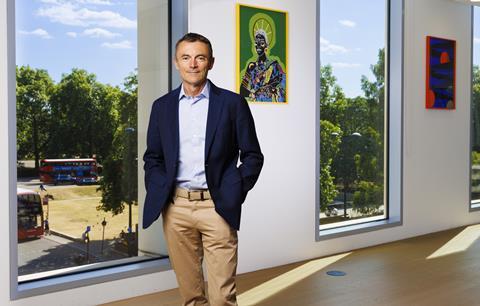
Helping consumers
Hampton sees Tate & Lyle’s role as “helping” consumers before they start taking the medication, while they’re on it, and afterwards.
“The research on AOMs is evolving very quickly. There’s a lot now that says, post coming off the drugs, you go back to old habits. Old habits are quite difficult to kick – so how do we help? Well, we’ll take your favourite snack and make it more nutritionally balanced.
“And while you’re on AOMs? You need denser food in some ways, because you’re consuming less. So, can we add protein, can we add fibre, to what you’re eating while you’re on the drug? There are massive, massive opportunities to help reformulate.”
Tate & Lyle says it’s taken 40 trillion calories out of the world’s diet in the past five years with its sugar replacement technology. And Hampton sees the company as a force for good, particularly given the growing global population that will need to be fed.
“It’s not just about solving for the health challenge, it’s also about solving for global population growth. It’s going to get more than 20% bigger in the next 50 years. That reinforces the need to reformulate to provide better health outcomes and do it in a way that has a reducing impact on climate,” he says. “We’re excited about transforming lives through the science of food. For us, it’s all about making tasty food healthier and healthy food tastier.”







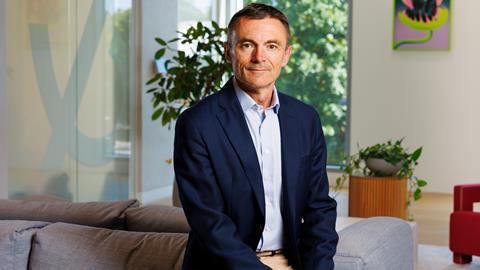
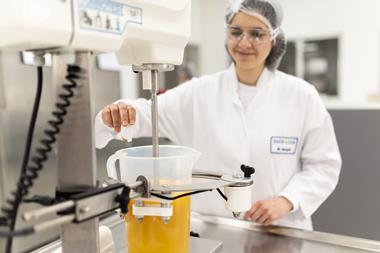






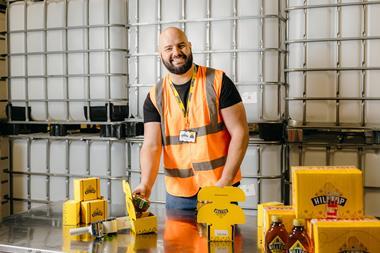
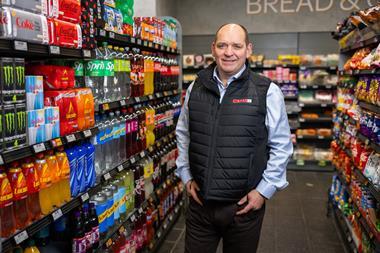
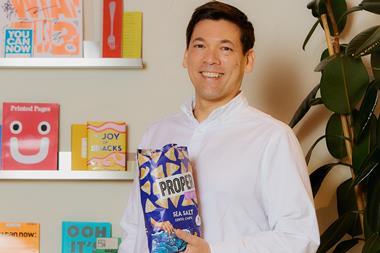
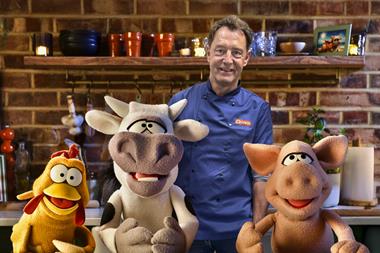
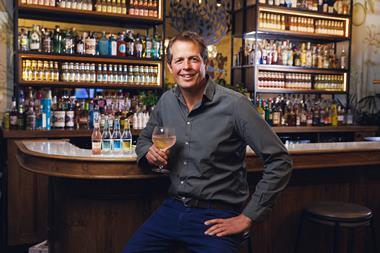
No comments yet